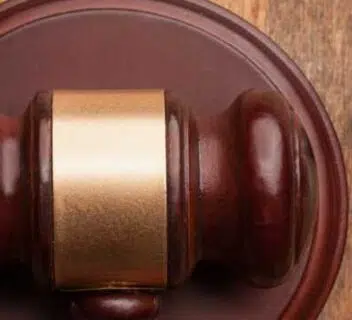Top 11 Personal Injury FAQs
This article can help you answer these top 5 personal injury FAQs:
- How do I know if I have a personal injury case?
- How much compensation can I get?
- What are the most important things to do right after an accident?
- What kind of cases do personal injury lawyers handle?
- What are the most common types of personal injury cases?
- What are personal injury cases?
- What is the meaning of personal injury?
- What is the difference between bodily injury and personal injury?
- How bad does an injury have to be to claim?
- What is a personal injury claim?
- What does “negligence” mean?
Frequently Asked Questions, or FAQs, About Personal Injury Cases
How Do I Know if I Have a Personal Injury Case?
Speak with a personal injury lawyer. Our personal injury lawyers will talk to you for free to determine if you have a valid case. Don’t rely on the advice of the internet or your friends because they simply can’t tell you what an attorney can. The biggest question is whether you can prove that someone is responsible for your injury; this isn’t always an easy question to answer, and that’s why you should talk to a lawyer.
How Much Compensation Can I Get?
Personal injury cases can vary drastically in value. The case is worth what your damages are. Damages can be medical bills, loss of wages, missed days of work, etc. One guide is to ask how much your medical expenses are. If you have 500 dollars in medical bills your case is worth much less than if you have 50,000 dollars in medical bills. The most open damages are “pain and suffering.” Some would say that pain and suffering is usually three times the medical bills.
What Are the Most Important Things to Do Right After an Accident?
It’s always wise to get medical attention if you are hurt in an accident. With car accidents, make sure to get a police report. Do this even if the other driver tries to pressure you into not calling the police, as it is one of the most important first steps to take. Take pictures, get a police report, get medical attention, get the other driver’s insurance information and license plate.
What Kind of Cases Do Personal Injury Lawyers Handle?
Personal injury lawyers handle a variety of disputes. In fact, any dispute centering around an injury caused by another party’s negligence, recklessness, or intentional misconduct “technically” falls under the umbrella category of personal injury. Personal injury disputes include, but are not limited to, the following:
- Motor vehicle accidents
- Pedestrian accidents
- Biking accidents
- Slip and fall accidents
- Product defect-related injuries
- Assault and battery claims (civil)
- Hazardous chemical exposure
- And more
What Are the Most Common Types of Personal Injury Cases?
Though personal injury is a broad category that covers everything from pedestrian accidents to
slip and fall accidents, the most common “type” of personal injury dispute are MVA claims, or motor vehicle accident claims. In this sub-category, there is a lot of variety as well. The litigation process for a blind side-impact collision is different than that of a multi-car pileup starting from a rear-end collision.
What Are Personal Injury Cases?
Personal injury is a broad umbrella category that describes any dispute linked to an injury related loss. Typically, this loss is caused by the defendant’s negligence, recklessness, or intentional misconduct. For example, a car accident claim and a slip and fall claim would both fall under personal injury.
What Is the Meaning of Personal Injury?
Personal injury is simply a legal case “type” that helps lawyers and courts define a particular category of claims. Personal injury is linked to any claim that arises from an injury related loss. For example, if you get hurt in a car accident, then you have sustained an injury that would give rise to a “personal injury claim.”
What Is the Difference Between Bodily Injury and Personal Injury?
Bodily injury describes the type of injury (physical), whereas personal injury is a case categorization that covers all injury focused claims, such as emotional distress.
How Bad Does an Injury Have to be to Claim?
It has to overcome what is referred to as the “de minimis” baseline. This is extremely dependent on the court’s discretion, but generally speaking, if you haven’t suffered any financial losses due to the injury, it’s not bad enough to be a claim. If you have suffered financial losses, that’s enough to generate a legal claim. This also applies to a minor loss due to a sprained ankle. A tiny, surface-level cut on one’s finger, which required no medical care, is probably not enough to generate a legal claim.
What Is a Personal Injury Claim?
Personal Injury Claims
A personal injury claim is a case in which you were hurt because of something that somebody else did or was responsible for (e.g., a car accident, truck accident or slip and fall). This usually occurs when someone is negligent. A personal injury lawyer will be able to tell you whether your situation is a personal injury case.
What Does Negligence Mean?
Negligence definition
Negligence defined is basically when someone doesn’t do what they are supposed to do. For example, drivers are supposed to stop at red lights. They have a legal responsibility to do so. So, if a driver sees a red light but doesn’t stop, they were negligent. If they run the red light and cause you to be hurt, then they are responsible for the damages that result from their negligence.
Find an Attorney to Help You File a Personal Injury Lawsuit
Here at 1-800-THE-LAW2, we maintain a large network of experienced personal injury lawyers who can help. Call us today for a free consultation. We’ll connect you to an injury attorney in just 10 minutes or less.




